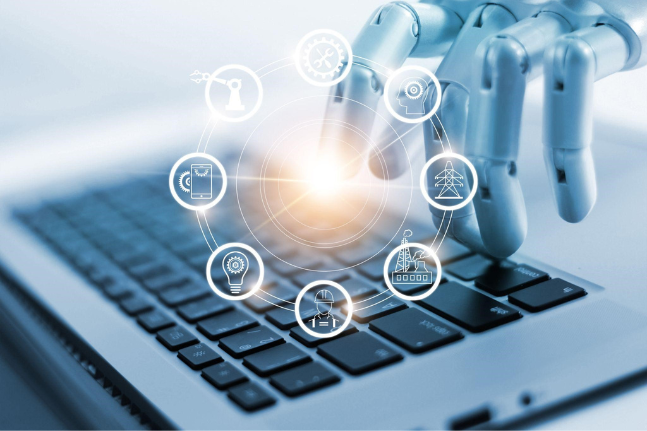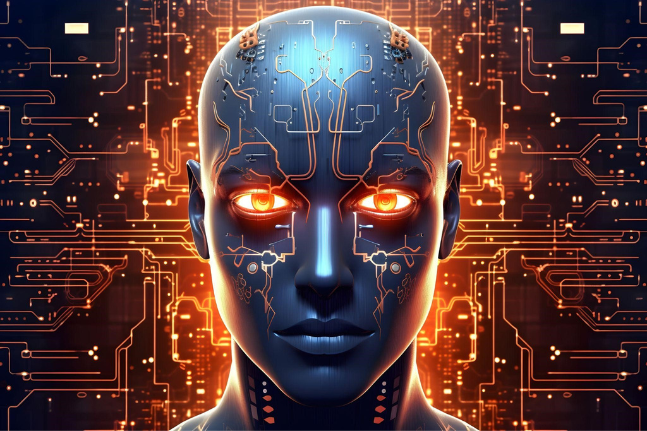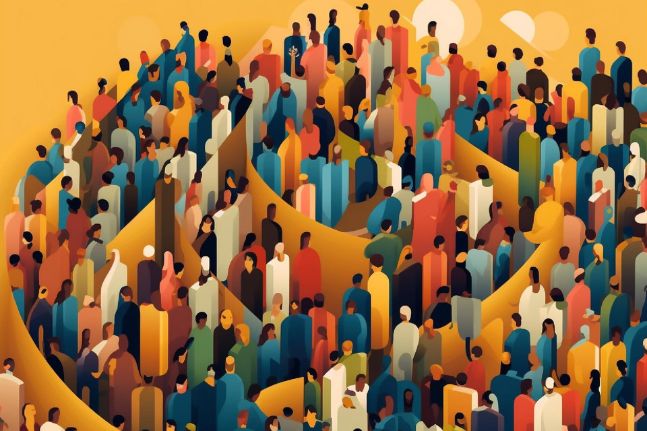AI is emerging as a pivotal force in the socioeconomic landscape. Its remarkable ability to analyze data at scales that humans can’t compete with is positioning it at the heart of numerous industries. But what does that mean for us? While AI is undoubtedly improving our lives, it has one motivating force in mind: efficiency. Humans, on the other hand, are driven by other forces—the pursuit of happiness, for instance. How are these differing aims going to affect the human experience in the coming years?
The benefits
“Revolutionizing” is a word that’s bandied about a lot in the tech sector, however, AI is well and truly earning that badge. AI in healthcare is improving diagnostic accuracy, streamlining administrative processes, and enabling personalized treatment plans. In short, AI is extending our life expectancy.
Similarly, in education, the technology is tailoring learning experiences to individual needs, offering a far more personalized experience and real-time feedback. This adaptability is heightening student engagement and performance and potentially transforming traditional degree and diploma programs.
With AI enhancing risk management and fraud detection in finance and delivering highly effective day-to-day resources through personal assistants like Siri, it’s demonstrating its ability to improve human life with gusto.
The issues
Arriving alongside AI’s astounding efficiency is the concern for potential job displacement. As AI systems automate tasks previously performed by humans, there is a risk of wide-scale unemployment and economic disruption.
Privacy and security issues are also a prime concern. AI systems require vast amounts of data to function effectively, raising concerns about data privacy and the potential for misuse. For instance, the increasing sophistication of AI in generating deep fakes poses a threat to public opinion and trust, highlighting the need for powerful security measures and ethical guidelines.
AI’s influence on human decision-making is another serious issue. Algorithms often shape consumer behavior by limiting options and narrowing choices. This could potentially lead to a reduction in human analytical abilities as we become increasingly reliant on AI for decision-making.
Additionally, AI has a tendency to reduce human identities and behaviors into simple, easy-to-manage metrics. This objectification can perpetuate biases, as seen in cases like Amazon’s hiring algorithm, which discriminated against women.
The future
As with any emerging technology, there are definite bumps in the road—but that doesn’t mean the road isn’t worth taking. The negatives that AI’s efficiency brings to the table were always going to arrive quickly—certainly, long before humans have a chance to sit down and address them.
The generations that live through the 21st century may well become known as the ones that paid the price of rapid development coupled with poor foresight and planning. That said, if humans emerge on the other side of this century as healthier, longer-living creatures that have more time to spend enjoying their lives, leaving efficiency to the machines may well be worth it, no matter how troubling it may get in the near future.



